Hey,
Donald Trump lashed out at the democratically elected Ukrainian president today, calling him “a dictator.”
Forget that this is a lie, just like Trump’s insinuation that Ukraine “started” the war with Russia—a claim that is the geopolitical equivalent of saying a rape victim started it by, well, being rapable.
But I don’t want to talk about the lie. You can defend Trump by telling me that it’s sort of true because elections are overdue in Ukraine. They are! You know why? Because the entire country is mobilized for a war it didn’t start and about a fifth of it is occupied by a country led by an actual dictator who targets children’s hospitals and sanctions rape, child abductions, and mass slaughter by its troops. But if you don’t have something better than that, don’t even bother trying.
No, what I want to know is, why does Trump care if Volodymyr Zelensky is a dictator? He doesn’t care that Putin, Xi, or Kim are dictators. Heck, America is negotiating over Ukraine’s survival in Saudi Arabia, which is not exactly a democracy.
Let’s back up.
We were told that the Trump era represented a sharp break with the outdated ideas of the past. The neocons? Done. Zombie Reaganism? Dead, not just zombie dead, but head-shot dead. Idealism, multilateralism, defending the international liberal order gitchy-gooeyness in all of its forms? Over. Kaput. Hawkishness, forever wars, adventurism? That neocon trash went down the chute on Election Day. Pax Trumpiana—a new Golden Age—will have us whistling zippity-doo-dah out of our asses atop a shining city on a hill. America first for as far as the eye can see.
How will Trump do it? Well, Trump is the greatest negotiator in history! Sure, people took him literally when he said that he’d end the Ukraine war in a day, or even before he took office. But when that didn’t happen, they took him figuratively. That’s how it always works with Trump apologists. Still, they believed he was going to put America first, by fixing the border, beating inflation, and ending the weaponization of the justice system (which must be reassuring to Danielle Sassoon as she lawyers up in anticipation of the “investigation” Trump’s Department of Justice is launching because she refused an unethical order). But let’s stick with foreign policy for a moment.
J.D. Vance in particular was supposed to be the one-man Brain Trust unpacking a shiny new realism for everyone to play with. He was supposed to be the guy who’d put meat on the bones of Trump’s foreign policy by post-truth Truth posts.
Last year, Vance gave a big speech at the Quincy Institute, the self-styled home of a smug realism that tends to always blame America first. (It was launched in part with money from both the Koch brothers and George Soros, so you know it’s gonna get foreign policy just right. Note that I have long been a fan of the Kochs—just not on foreign policy, where they subscribed to a venerable form of cranky libertarian idealism.)
Vance laid out a strong (but sort of odd) defense of Israel. But good for him—that can’t have gone down well there. He also made a case for Very Serious Realism®. Everything America did with regard to foreign policy for 40 years was wrong. “Somehow the foreign policy consensus of this town seems to almost always be wrong,” the new Talleyrand explained. Why? Because it was all based on moralistic sloganeering. In an interview with The Times, he told Ross Douthat that the first pillar of his new realism was that “moralisms about ‘This country is good,’ ‘This country is bad’ are largely useless.”
To be clear: this is not a new idea. Indeed, it’s a standard line of realist thought, and it has some merit. That’s why this idea, in moderation, was a major plank of conservative and neoconservative foreign policy throughout the Cold War. But unlike those fools and nincompoops, Vance really means it.
So, when Trump came out of the gate refusing to rule out the use of force on a founding NATO ally to fork over Greenland, the thought was this was just bluster from the World’s Greatest Negotiator®. Don’t worry, we’re gonna get to the Very Serious Foreign Policy For Grown-Ups we were promised. At least we’re not doing any of that Bush-Cheney nation-building nonsense in the Middle East!
Then Trump set free his inner condo salesman and floated the idea of seizing Gaza, displacing 2 million people, and creating a new Middle East Riviera.
And everyone acted like Politburo members after Stalin farted. Act like you didn’t notice and hope the stink dissipates before you’re required to say it smells like fresh-baked cookies.
The new secretary of defense went to Brussels and, on behalf of the Great Negotiator, pushed most of America’s negotiation chips into the pot before the cards were dealt. No NATO membership for Ukraine. Russia will keep the land it stole. Because grown-ups. In fairness to Pete Hegseth, he did try to walk back the blunder the next day. But one could almost hear foreign policy experts saying, “If this is newly sober Hegseth, maybe we should tap a keg for him.”
Variable Vance
The good news? J.D. Vance went to Europe to straighten everybody out. Vance’s two speeches, one in Paris, the other in Munich, received rapturous reviews from American conservatives, including my friends over at National Review. Now, I mostly liked his speech in Paris on artificial intelligence, technology, and regulation. It was a good speech. He is exactly right about Europe’s sclerosis-inducing obsession with regulation. But you know what? It was awfully … Reaganite.
The funny thing is, Vance wasn’t so much contradicting Trump’s views on regulation, which are more right than wrong. But he was in some tension with his own. After all, Vance is the guy who likes industrial policy and supported Lina Kahn, Biden’s decidedly European-style Federal Trade Commission chair. It’s funny how Vance, a Peter Thiel protégé, is—now—a principled limited government guy for Big Tech, but not so much for steel, cars, washing machines, refrigerators, and of course, toasters. Look I get it. He’d respond that his protectionism is consistent with his laissez-faire approach to Big Tech. He’s for lifting regulations at home, and imposing them at the border. Or something like that. But that doesn’t change the fact that he thinks the government is smarter than the market and he knows how to pick winners and losers.
But we can explore all that another time. The really important speech was in Munich. Now, you might have expected the champion of cold-eyed realism and scourge of neoconservative moralizing, idealism, and democracy fetishization in foreign policy to deliver a blistering speech full of hard truths about military might and realpolitik. But there was precious little of that. Instead, he lit into our European allies for their failure to live up to liberal ideals. He mocked Romania for canceling an election Russia had meddled in. He rightly torched the United Kingdom for its increasingly Orwellian attitude towards speech and religious liberty.
Now, I agree with the substance of a lot of this stuff. But wait a second. The whole point of realism is to disregard the moral character of allies. And yet the great realist hope—and post-liberal hope—wagged his judgy finger at allies for being insufficiently liberal and democratic. “Democracy rests on the sacred principle that the voice of the people matters,” said one of the foremost apologists for Donald Trump’s attempt to steal an election. “There is no room for firewalls. You either uphold the principle or you don’t.”
That reference to “firewalls” was in part a rebuke of Germany’s policy of shunning neo-Nazi elements and movements. The Germans don’t do this because they’re “woke,” they do it because Germany gave into a madness that led to carnage and genocide on an industrial scale. Perhaps the Germans have a better understanding of their demons and the dangers of Nazis than the 40-year-old vice president who, just a few years ago, mused that his current boss may be “America’s Hitler.” Vance met with leaders of the AfD, a hard right populist, anti-immigrant party that is not quite neo-Nazi but plays footsie with such groups. It’s earned the support of Elon Musk as well.
It is perfectly fine to argue that Germany has taken its heroic effort to learn from its horrific past too far. The recent 60 Minutes segment on Germany’s policing of hate speech is a very strong piece of evidence for that view. Still, I am more with Bret Stephens on this.
But again, huh? Why is Vance so keen on moralizing about a democratic ally’s internal affairs but blasé about, I dunno, Russia’s external barbarism and internal tyranny? Amoral cynicism for our enemies but Wilsonian moralizing for our friends is an interesting foreign policy, but “realism” it ain’t.
Vance argues, fairly, that we should hold members of the free world to a higher standard than we apply to our enemies. Looking at the modest illiberal transgressions of our allies, he said, “we ought to ask whether we’re holding ourselves to an appropriately high standard. And I say ‘ourselves,’ because I fundamentally believe that we are on the same team.”
Good to hear. But you know that 60 Minutes episode I mentioned earlier? The segment on Germany’s excessive policing was indeed chilling. But so was Elon Musk’s response to another segment on the same episode. The program ran a report critical of Musk’s DOGE efforts. Whatever you think of the segment is irrelevant. But Musk’s reaction is very relevant.
“60 Minutes are the biggest liars in the world!” Musk said on X. “They engaged in deliberate deception to interfere with the last election. They deserve a long prison sentence.”
Musk was referring to the Kamala Harris interview the Trump campaign insists—with scant proof—was so deceptively edited it amounted to “election interference.” Trump’s Federal Communications Commission came down on CBS News for it, and Trump is suing 60 Minutes over it.
Now, explain to me how Russia’s multi-front and sweeping interference is a triviality that in no way justifies censorship or retribution that might chill speech, but run-of-the-mill liberal media bias justifies a “long prison sentence.” If Vance feels comfortable hectoring allies about their hostility to free speech in the name of “holding ourselves to an appropriately high standard” surely holding America to that standard shouldn’t be hard.
But let’s get back to where we started. As he throws Ukraine under the bus in an effort to bail out Vladimir Putin—and that is clearly what he is trying to do—Trump has settled on a line of attack that should make realists squirm. Zelensky is a dictator! He hasn’t held elections! “In most democracies, elections take place even during wartime,” Trump’s envoy to the conflict, Keith Kellogg, opined. “I think it’s important. I believe it’s good for democracy.”
As Noah Rothman quips, “we’re all neocons now!”
Noah goes on to explain that these criticisms of Zelensky as undemocratic are tendentious at best. But, again, are we really supposed to believe Trump actually cares about Ukrainian democracy? Really? Believing that is as dumb as believing that most MAGA intellectuals are sincere nationalists. They talk a big game about the sacredness of national sovereignty, but it’s sovereignty for me, not for thee. After all, Ukraine is a nation, and Trump is happy to let Russia carve it up. (Other similar examples are Denmark, Canada, Panama, Mexico…) Vance has made it clear that he thinks it’s fine to wade into our allies’ internal affairs, too. Now, I’m not saying all of the policies and opinions associated with these postures are wrong, I am saying they have nothing to do with anything like a consistent principle other than Trump’s Veruca Salt-like “I want it now!” attitude.
This isn’t brilliant realist foreign policy, because it’s neither brilliant nor realist. It’s Trumpism on a global stage: grab whatever argument works in the moment, even if it contradicts everything or anything you’ve said up till that point, in order to get what you want. If saying Ukraine started the war gets you what you want, say that. If whining about the lack of elections will get you five more minutes of fawning coverage on Fox, say that. Trump wants Putin at G7 summits. He wants to visit Moscow. He wants Putin’s strongman musk to rub off on him in photo ops. There’s no grand strategy behind it.
My favorite illustration of this comes not from Trump or Vance, but from Hegseth. “We see Poland as the model ally on the continent, willing to invest not just in their defense, but in our shared defense and the defense of the continent. . . .” Hegseth said in Warsaw. “Words are cheap, but in deed and in actions. Poland leads by example, on a lot of things, including defense spending, building up Polish military readiness.”
I largely agree with this. But you know why Poland is spending so much on defense? Because they worry they’ll be next after Ukraine. Russia has invaded or declared war on Poland at least five times since the 17th century. It’d be more, but for long stretches of time Poland was already occupied by Russia. The Trump administration is somewhere between blasé and contemptuous about the reason Poland is a model NATO ally, because they want to pretend that the real reason is that Poland is doing what Trump wants.
That’s it. That’s Trump’s foreign policy: What I want for whatever reason I want it. The rest is pretext, spin, and trolling.
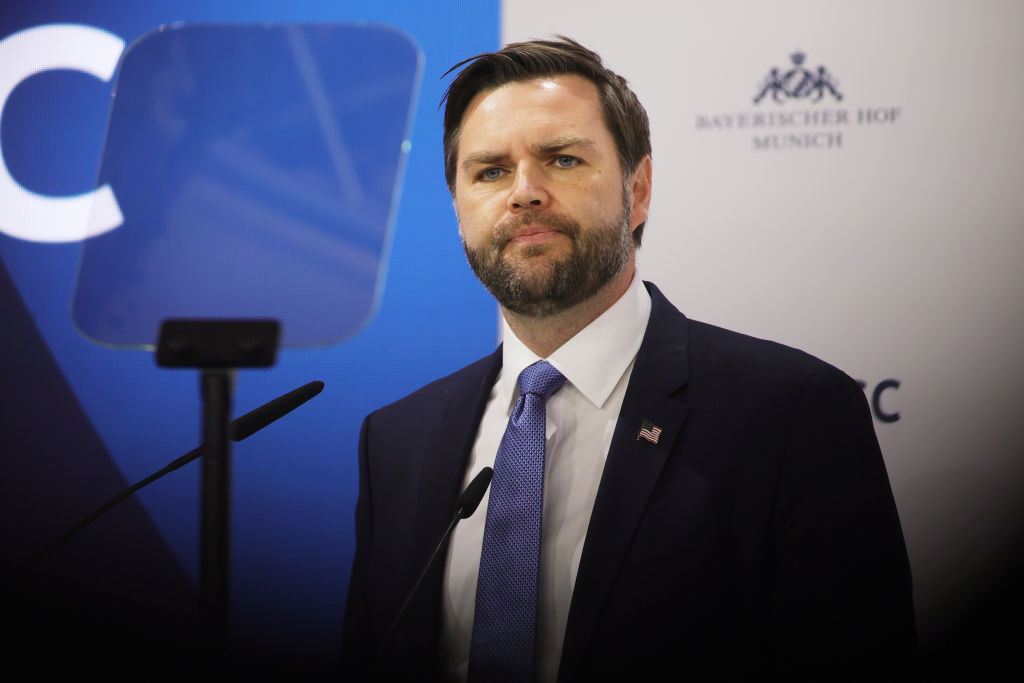

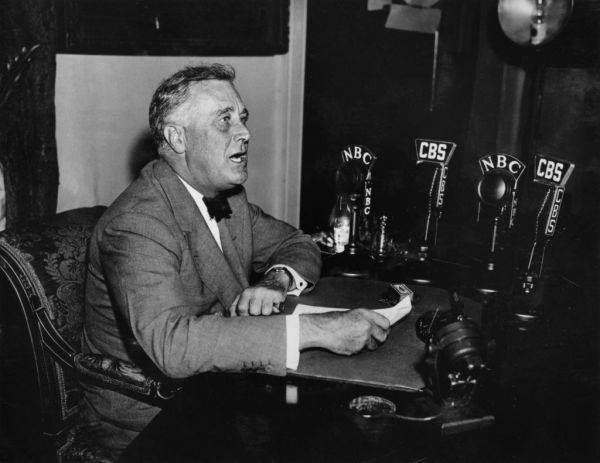
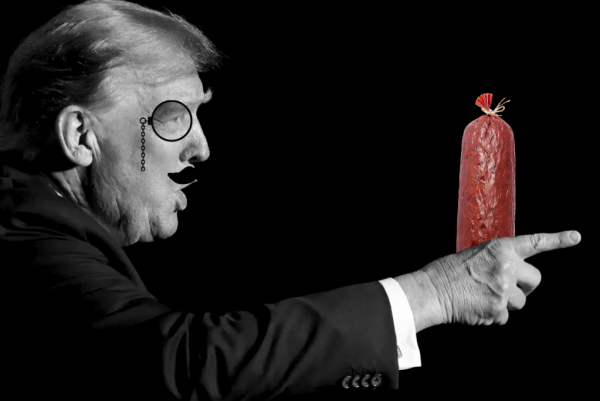
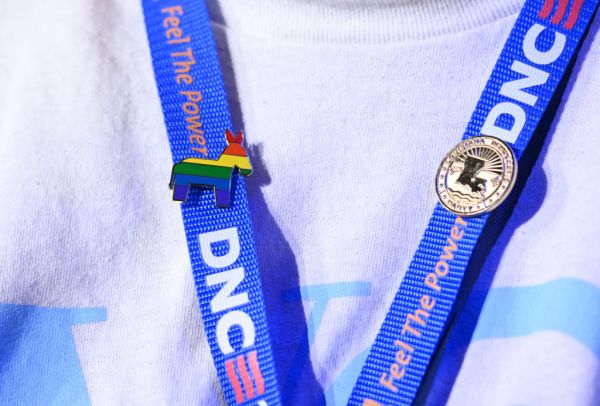


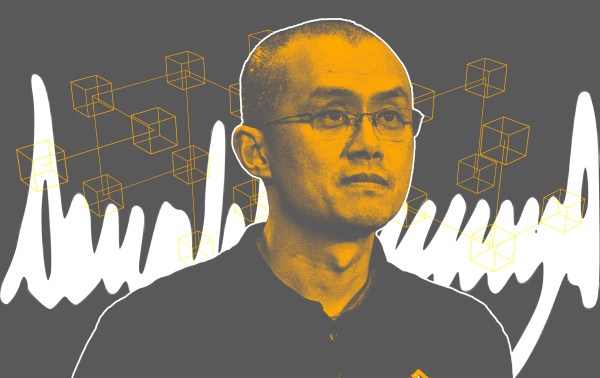
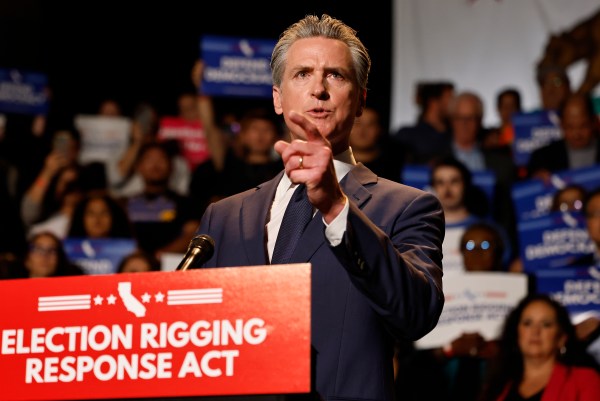

Please note that we at The Dispatch hold ourselves, our work, and our commenters to a higher standard than other places on the internet. We welcome comments that foster genuine debate or discussion—including comments critical of us or our work—but responses that include ad hominem attacks on fellow Dispatch members or are intended to stoke fear and anger may be moderated.
With your membership, you only have the ability to comment on The Morning Dispatch articles. Consider upgrading to join the conversation everywhere.